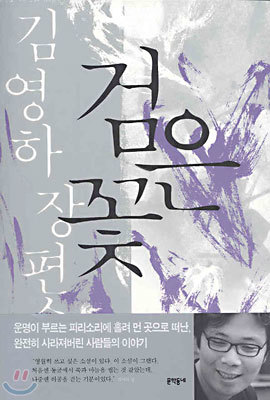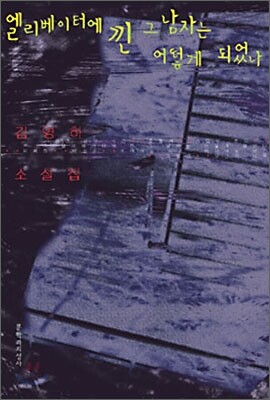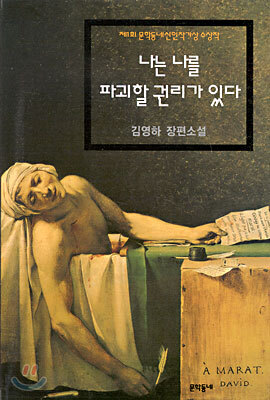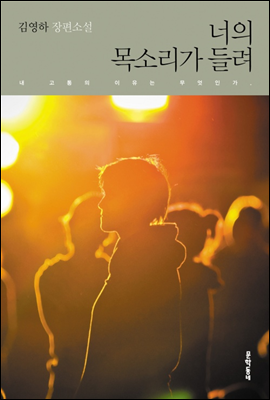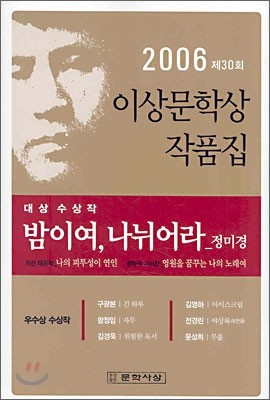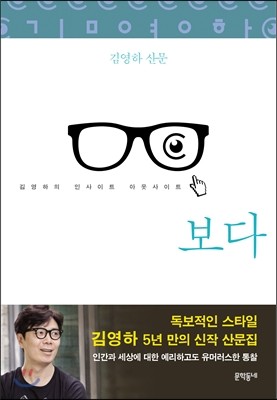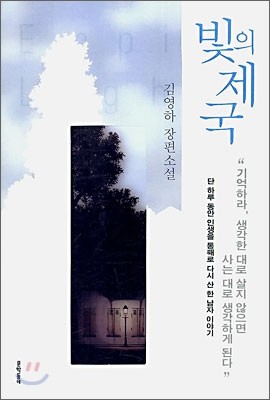-
검은 꽃
Geomeun kkot
Korean(한국어) Printed/Published WorkKim Young-ha / 김영하 / 2003 / -
This work tells a story of suffering through a light and powerful style. While showing a tragic aspect of modern Korean history, this novel provides a glimpse into a sober reflection on the tragedy.
-
김영하 단편선: 피뢰침
Gimnyeongha Danpyeonseon: Piroechim
Korean(한국어) Printed/Published WorkKim Young-ha / 김영하 / 1999 / KDC구분 > literature > Korean Literature > Korean Fiction > 20th century > Short Story
This is a short story by Kim Young-ha, published in his 1999 short story collection titled Ellibeiteoe kkin geu namjaneun eotteoke doeeonna (What Happened to the Man Who Got Caught in the Elevator). Rather than seriously addressing the issues faced by the characters in the story, it proposes new perspective while traversing the boundary between fantasy and reality.
-
김영하 단편선-엘리베이터에 낀 그 남자는 어떻게 되었나-
Gimnyeongha danpyeonseon-ellibeiteoe kkin geu namjaneun eotteoke doeeonna-
Korean(한국어) Printed/Published WorkKim Young-ha / 김영하 / 1999 / KDC구분 > literature > Korean Literature > Korean Fiction > 20th century > Short Story
This is the titular story of Kim Young-ha’s 1999 short story collection titled Ellibeiteoe kkin geu namjaneun eotteoke doeeonna (What Happened to the Man Who Got Caught in the Elevator). In this humorous depiction of an absurd day in the life of an ordinary office worker, the author questions the meaning of unexpected moments in people’s daily lives.
-
나는 나를 파괴할 권리가 있다
Naneun nareul pagoehal gwolliga itda
Korean(한국어) Printed/Published WorkKim Young-ha / 김영하 / 1996 / KDC구분 > literature > Korean Literature > Korean Fiction > 20th century
This is a novel by Kim Young-ha, published in 1996. It uses fantasy techniques to portray death in a sophisticated and detailed manner. It shows that death is not something dark and gloomy, but something that is close to people’s everyday life.
-
너의 목소리가 들려
Neoui moksoriga deullyeo
Korean(한국어) Printed/Published WorkKim Young-ha / 김영하 / 2012 / KDC구분 > literature > Korean Literature > Korean Fiction > 21st century
This is a novel by Kim Young-ha, published in 2012. Through the protagonists’ grief and anger, the author shows that that is the common way of life.
-
루비나 65
rubina 65
Korean(한국어) Printed/Published WorkYi Sang et al / 이상 et al / 2011 / KDC구분 > literature > Korean Literature > Korean Fiction > 21st century
-
무슨 일이 일어났는지는 아무도
Museun Iri Ireonanneunjineun Amudo
Korean(한국어) Printed/Published WorkKim Young-ha / 김영하 / 2010 / -
2010년에 출간된 김영하의 단편소설집이다. , , , 등 13편의 단편소설이 수록되어 있다. 이 소설집은 자신이 로봇인줄 아는 남자, 자신이 죽었다는 사실을 모르는 사람 등의 독특한 소재를 취하며 일상의 단면과 동시대의 현실을 생생하게 드러내고 있다.
-
밤이여, 나뉘어라
Bamiyeo, nanwieora
Korean(한국어) Printed/Published WorkJung Mikyung et al / 정미경 et al / 2006 / -
2006년 제30회 이상문학상수상 작품집이다. 정미경의 단편가 대상을 수상했으며, 김경욱, 김영하, 윤성희, 전경린, 함정임 등의 작품이 수록되어 있다. 정미경은 수상작에서 영화감독인 주인공을 통해 인간 존재의 허무와 황량함을 넘어서기 위한 고투를 보여준다.
-
보다
Boda
Korean(한국어) Printed/Published WorkKim Young-ha / 김영하 / 2014 / KDC구분 > literature > Korean Literature > Essay > 21st century
2014년에 출간된 소설가 김영하의 에세이집이다. 예술과 인간의 문제, 사회문제를 거시적이고 미시적인 시각으로 살핀 26편의 글이 삽화와 함께 수록되어 있다. 인간의 내면과 사회의 구조에 대한 작가의 비판적인 시각을 살펴볼 수 있다.
-
빛의 제국
Bichui jeguk
Korean(한국어) Printed/Published WorkKim Young-ha / 김영하 / 2006 / KDC구분 > literature > Korean Literature > Korean Fiction > 21st century
This is a novel by Kim Young-ha, published in 2010. The novel raises a contemporary problem through the point in which an individual's life and the history of a community overlap. The entire novel focuses on the events of a single day in the protagonist’s life, and this day, which is a condensed version of his life, also becomes the time for him to determine the present.
Original Works
We provide information on Korean literature titles (classical, modern and contemporary) in multiple languages.



